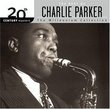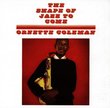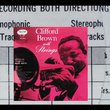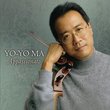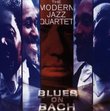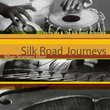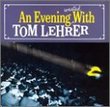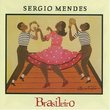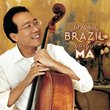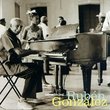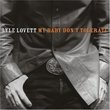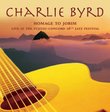| All Artists: Charlie Parker Title: Charlie Parker with Strings: The Master Takes Members Wishing: 1 Total Copies: 1 Label: Polygram Records Original Release Date: 1/24/1995 Release Date: 1/24/1995 Genres: Jazz, Pop Styles: Swing Jazz, Bebop, Orchestral Jazz Number of Discs: 1 SwapaCD Credits: 1 Other Editions: Charlie Parker With Strings The Master Takes UPCs: 731452398420, 602517036901 |
Search - Charlie Parker :: Charlie Parker with Strings: The Master Takes
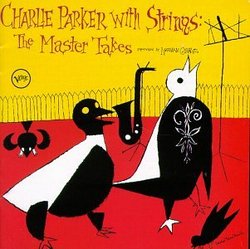 | Charlie Parker Charlie Parker with Strings: The Master Takes Genres: Jazz, Pop
Charlie Parker welcomed the opportunity to record standards with a small string ensemble in 1949, and the results are stunning, his liquid alto soaring over the tuneful and only occasionally stiff arrangements. Along the w... more » ![header=[] body=[This CD is available to be requested as disc only.]](/images/attributes/disc.png?v=15401716) ![header=[] body=[This CD is available to be requested with the disc and back insert.]](/images/attributes/disc_back.png?v=15401716) ![header=[] body=[This CD is unavailable to be requested with the disc and front insert at this time.]](/images/attributes/greyed_disc_front.png?v=15401716) ![header=[] body=[This CD is unavailable to be requested with the disc, front and back inserts at this time.]](/images/attributes/greyed_disc_front_back.png?v=15401716) |
Larger Image |
CD DetailsSynopsis
Amazon.com essential recording Charlie Parker welcomed the opportunity to record standards with a small string ensemble in 1949, and the results are stunning, his liquid alto soaring over the tuneful and only occasionally stiff arrangements. Along the way, he invests tunes like "I Didn't Know What Time It Was" and "Laura" with a unique blend of bluesy realism and mercurial improvisation. The CD adds live versions from a Carnegie Hall concert, and there are also two brilliant versions of Neal Hefti's "Repetition." The 1947 version has Bird flying spontaneously over the dense orchestration of horns, strings, and Latin percussion. --Stuart Broomer Similar CDs
Similarly Requested CDs
|
CD ReviewsStill ahead of his time Michael J Edelman | Huntington Woods, MI USA | 01/30/2001 (5 out of 5 stars) "What Parker did on this album isn't so different from what Miles Davis and Gil Evans did years later with "Sketches of Spain"- and come to think of it, that album was panned by critics who couldn't understand it, either. When the string intros start up, the casual listener might assume that this album sisn't terribly different from the easy-listening music that pours of of elevators and "mellow jazz" radio stations that it's easy to ignore it. But there's something much more complex going on; Parker has created something very rare here; he's taken a music form that few really listened to and framed it in a way that made it more accessible while not compromising his musicality in any way. This isn't the boring and innoffensive harmonies of a Kenny G.; this is Charlie Parker, and he's playing for all it's worth. And it comes through." Massive extension to Bird's repertoire Michael P. Beck | Allentown, PA United States | 10/19/2005 (5 out of 5 stars) "This album is very important in that it shows Bird's ability to lead a large ensemble, albeit an ensemble playing relatively standard arrangements, and it demonstrates Bird's unparalleled ability with improvisation, unmatched to this day. Since this orchestra was not really pushing Bird to further heights via reharmonizations, comping chords or frantic solos, Bird had to create his improvisations all on his own, without a Dizzy or Bud Powell to play off of. And this he does with alarming precision, as the first bars of 'Just Friends' will attest to- he probably suggests 7 or 8 chord changes within 10 seconds and over essentially a 3 chord opening sequence. Bird himself was overjoyed to work with a string ensemble, as he felt that it would lend credibility to his status as a serious musician, even though by the time this was recorded he has already produced works that would put him easily in the top 5 of 20th century musicians along with Stravinsky and Louis Armstrong. As amazing as Bird was, it's important to note that he really only worked within two song forms, blues and popular song standards like 'Cherokee' and 'How High the Moon', which he put his own indelible stamp upon. It is for this reason that I find this album so important beyond just enjoying the music, as it demonstrates a massive extension to Bird's repertoire, which before this was limited primarily to smaller groups, not including his sideman work with Jay McShann and Billy Eckstein. Had he lived longer, he would have undoubtedly ventured into modern classical music, as he was hoping to collaborate with Edgar Varese through formal instruction. I think I was most surprised upon hearing this album for the first time that it was considered a sell-out commercial farce upon its release. Yeah- you could really see today's commercial music populous being interested in this album. This is complex, harrowing music and is romantic as all hell. Anyone could appreciate this if given the chance." HEAR THE MUSIC... DISCOVER THE MAN. JAZZ AT ITS BEST!!!!!!!! Paulo Leite | Lisbon, Portugal | 05/03/2005 (5 out of 5 stars) "I just had to write a few words about this record. It is absolutelly beautiful... This is my favorite Jazz album (along with Brubeck's Time Out) and every time I listen to it is like meeting an old friend.
This CD comprises a 10" LP called "Charlie Parker with Strings", another LP called "Jazz Concert" and an EP called "Charlie Parker With Strings" (not related to the first one). So it contains recordings made in 1947 (only the last track), 1949, 1950 and 1952. The music... pure genius. Here, Bird plays only standards. But when he plays them, all standards look like they were written just for Charlie. It looks like they were waiting to be played by him all along. Like no one else have ever played them before. He comes and goes, he improvises, he returns.. and he never gets too far... and he never gets too literal. My favorite tracks are "Just Friends" (played with an eloquence seldon seen on any version of this song), "Laura" (simply the best version of this song ever played), "April in Paris" (in this cd you get TWO versions), "I didn't Know what Time It Was" and "I'm in the Mood for Love". Listening to this record once more, I get to see how this troubled musician was capable of such beautiful feelings. And indeed he was a man of feelings. But there is more. The orchestration is clear and quick to respond (the kind of orchestras we only see in the 50's). If there are records where everything is right... look no further. This is it. It is also worth mentioning that these recordings were produced by a legend among Jazz producers: Norman Granz (if you are reading this, you probably know him already from other classic Jazz recordings). Plus: the CD comes with new linear notes and nice reproductions of the original ones. By the way... in the Clint Eastwood movie "Bird", when Charlie Parker is in the hospital, a doctor holding one of these LPs asks for his autograph. The sound quality is great, considering the age of these recordings... A true moment of musical magic and art " |

 Track Listings (24) - Disc #1
Track Listings (24) - Disc #1